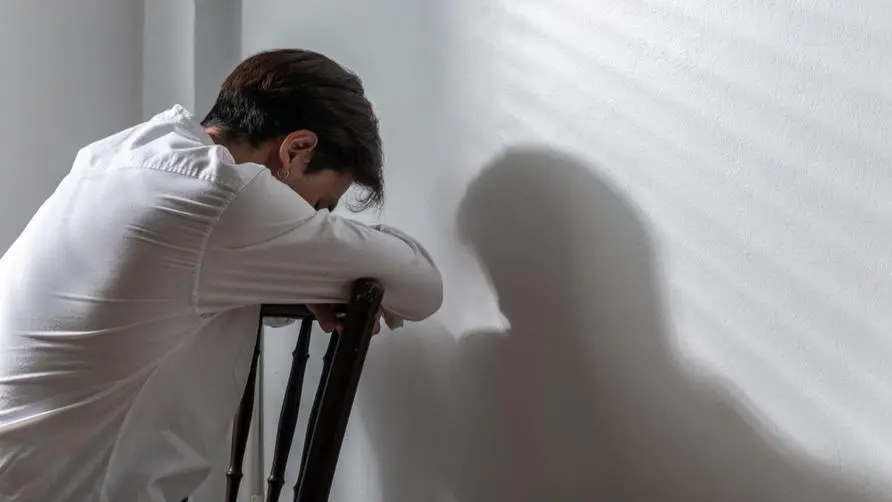Are there signs of schizophrenia? What problems can occur if you stop taking medication on your own? A chance to live a normal life with regular treatment?

Why does schizophrenia occur? Is it related to family inheritance and acquired stress?
Schizophrenia was formerly known as “schizophrenia”. Frequent violent incidents in recent years have led to an increase in people’s fear of patients with schizophrenia. Dr. Qiu Yihang, director of the acute psychiatric ward of Taipei Municipal Wanfang Hospital, and Dr. Zhang Shengjie, the attending psychiatrist, accepted an exclusive interview with “healthorn” and said that schizophrenia is a disease of the brain, mainly due to the interaction with “neurotransmitters” in the brain. The imbalance is caused by the disorder of the dopamine system.
Dr. Qiu Yihang said that the prevalence rate of schizophrenia is about 1%, and it is “hereditary.” If there is a related family history, the patient’s probability of suffering from schizophrenia will be higher. According to studies on identical twins with schizophrenia, if one of the identical twins suffers from schizophrenia, the rate at which the other twin also suffers from schizophrenia is as high as 50%.
Dr. Zhang Shengjie added that although the closer the blood relationship is, the greater the chance of getting schizophrenia, but not 100% of people with a family history will get schizophrenia; in the case of carrying risk genes for schizophrenia, It often requires the induction of external stressful events to cause the disease, and the amount of stress required to cause the disease varies from person to person.
How to judge the symptoms of schizophrenia? Please pay attention if more than two of the “5 situations” apply
Dr. Qiu Yihang said that according to the definition in the Diagnostic Guidelines for Mental Disorders manual, patients with schizophrenia will experience hallucinations (more often auditory hallucinations), which may be combined with gibberish (such as skipping topics, loose sentences), chaotic behavior, etc. condition, and so-called “negative symptoms” such as expressionlessness and lack of motivation. When at least two of the above five symptoms appear, including at least one of delusions, hallucinations, and nonsense, and when the total duration of the disease exceeds 6 months and affects life functions, it is consistent with the diagnosis of schizophrenia.
Dr. Zhang Shengjie said that the age of onset of schizophrenia is from late adolescence to early adulthood. Women have a slightly later onset time and may have prodromal symptoms before the onset, such as becoming alienated from interpersonal interactions, becoming suspicious, or neglectful. Self-care and may refuse to go to school, skip classes and other behaviors. These symptoms are not “specific”; that is, it cannot be inferred from the prodromal symptoms that it will later develop into schizophrenia. However, if caregivers find that the patient’s life functions are gradually deteriorating, they should actively seek medical help at an early stage.
Can medication be stopped after symptoms of schizophrenia stabilize? “Irregular treatment” may reduce the efficacy of the medicine and cause brain damage
Dr. Zhang Shengjie said that the treatment of schizophrenia is divided into “acute phase” and “maintenance phase”. When a patient develops symptoms of delusions, hallucinations and confusion, drug intervention is the so-called acute phase treatment; when the patient has been treated and the symptoms are relatively stable, the patient enters the maintenance phase. At this time, it is recommended to continue taking medication to prevent recurrence.
Dr. Qiu Yihang added that maintaining stress-relief habits, seeking good stress-relief methods such as psychological counseling, and getting support from relatives and friends can all help improve the condition. Doctors also emphasized that medication assistance is still the core part of the treatment for schizophrenia. If the medication is stopped without authorization or irregular treatment is adopted, the possibility of symptom recurrence is extremely high, and each recurrence will cause brain damage; drugs that have achieved results once , the medicine may not be as effective as before after relapse. Therefore, when doctors write prescriptions, they will specifically instruct patients not to stop taking medications on their own. For some patients who are unwilling to take oral medications for a long time, there are currently several long-acting injections available.
Is the media’s “over-exaggeration” causing stigmatization of mental disorders? Doctor: Prejudice may cause patients to refuse treatment
Dr. Qiu Yihang emphasized that most patients with schizophrenia have a withdrawn personality, are afraid of interacting with others, and have no confidence in themselves. A few patients may indeed engage in violent behavior, but due to excessive media exaggeration, the public has prejudiced against patients with mental illness. Compared with discrimination, patients with schizophrenia actually want to stay away from the crowd and not be disturbed. A few special cases are not enough to make news.
Dr. Zhang Shengjie said that even if a small number of patients with schizophrenia engage in violent behavior, there are countless normal people without related mental disorders who commit crimes and violence, and violent behavior should not be equated with schizophrenia. Doctors believe that the more serious the prejudice against schizophrenia in society, the more patients will be unwilling to accept their illness and thus refuse treatment. Therefore, the stigmatization of schizophrenia is unnecessary.
His academic performance and interpersonal relationships were hampered due to his mental disorder. He returned to regular visits and his condition improved and he was able to attend school normally.
Dr. Qiu Yihang said that 4-5 years ago, a high school student from a single-parent family came to see a doctor accompanied by his mother. After diagnosis, he was diagnosed with schizophrenia. At this time, the case had significant obstacles in academic performance and interpersonal relationships. Fortunately, with the encouragement of his mother, he received treatment, and his condition improved and he successfully entered university.
Later, when the patient returned for a follow-up visit, he was informed that his mother had passed away due to worsening peritoneal cancer. The mother had never forgotten her instructions to return to the hospital every month for treatment by a doctor. Some patients with schizophrenia often have poor disease control due to lack of awareness of the disease or irregular treatment. This case is about to complete college studies under regular follow-up treatment, and its functional impairment is much less severe than before. Doctors urge anyone who finds themselves or their relatives and friends to have cognitive abnormalities or unusual behaviors to seek help from a psychiatrist and make regular follow-up visits to avoid recurrence of symptoms and aggravation of treatment difficulties.





